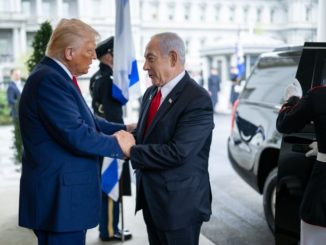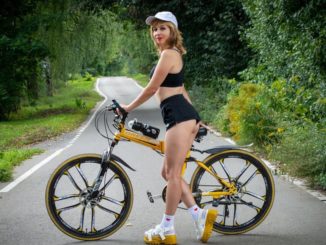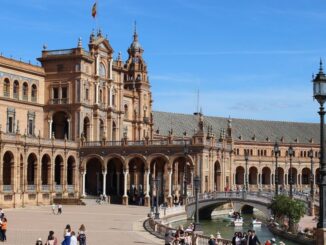
As may have been previously mentioned, I will be a polling clerk on May 23rd should the Euro elections take place. It’s my first time so I was expecting some training but no, I have been told I will be shown what to do on the day. Forewarned is forearmed so I looked around for some help. Search google for “Polling-station-handbook-LGEW” for more information. This was prepared in 2018 for local gummint elections.
Having read all 56 pages I thought I would share a few things with the puffins.
Terms to understand
- Presiding Officer – the person in charge of one more polling stations.
- Polling Clerk – the people who check you off on a list and dish out the polling papers.
- Candidates – the people standing for election
- Election Agents – the agents for the candidates
- Polling Agents – can be appointed work on behalf of candidates. Their primary function is to detect personation (pretending to be someone else). Not more than one polling agent per candidate is allowed to be in the polling station at a time.
- Tellers – the nosy sods who sit outside the entrance and ask to see your polling card as you enter the polling station.
Firstly there is a load of guff about preparing the polling station, what should be placed where and so on. Then there is a bit about handling the lack of a key-holder, on other words, if you can’t get into the polling station. A few more things about the signs to be shown and where to place them.
then comes the “who can be present in the polling station” and it turns out these are the people
- Voters
- Election Staff
- Candidates
- Election Agents
- Polling Agents
- Plod and PCSOs on duty at the polling station
- The Electoral Commission
- Accredited Observers (Harare Bob perhaps)
- Persons under the age of 18 who accompany voters
- Companions of disabled voters.
Note that tellers are not on the list of people who are allowed to be in the polling station. They are allowed to wear their party colours and wear party rosettes but must remain outside the polling station proper. They are effectively political activists.
The returning officer and his staff may visit during the course of the day. This could be for example, to deliver additional equipment, inspecting the polling station or to collect postal ballot papers that have been handed in at the polling station (Tower Hamlets anyone).
Polling agents may mark the names of the voters on their copy of the list but may not remove the list from the polling station until close of play. They may also be close enough to hear what is going on but not close enough to compromise the secrecy of the ballot.
Sealing the ballot box. This must be done by the Presiding Officer a few minutes before 7am after having shown those entitled to be present that the box is indeed empty.
Yer actual voting
The polling station must open at 7am.
- Check the voter, ask for the voter’s name and mark it off on the list.
- Give the voter the ballot paper. write the elector number on the list next to the number of the ballot paper. Fold the ballot paper then hand it over unfolded.
- The voter goes individually to the booth unless disabled or unable to read.
- The voter marks the ballot paper.
- The voter then folds the paper and shows the presiding officer the ballot number and unique mark before placing it in the ballot box.
Variations
Some voters are allocated anonymous entries and must produce their poll card or proxy pollard in order to vote. Some electors are allowed an anonymous entry to protect them from harm. An obvious example right now would be Tory MPs perhaps.
Codes on the list that identify in which elections an elector is allowed to vote
- N – An anonymous entry
- G – EU citizens (except the UK, RoI, Cyprus and Malta) who can vote in local government, PCC and devolved institution elections
- K – EU citizens (except the UK, RoI, Cyprus and Malta) who can vote in local government, PCC and devolved institution elections
- L – Members of the HoL who can vote in local government, PCC and devolved institution elections
- A – Postal voters, not allowed to vote
- E – Peers of the realm who are overseas voters are only allowed to vote in European elections.
- F – overseas who can only vote in UK Parliamentary and European elections.
- Electors who are not yet 18 are not allowed to vote (date of birth on the list)
G and K seem to be identical but there must be some difference.
Closing the poll.
Voters queuing at 10pm are still allowed to vote but no more are allowed to join the queue.
The following people are authorised to be present at the close of voting.
- Candidates
- Election Agents
- Polling Agents
- Plod and PCSOs
- Representatives of the Electoral Commission
- Accredited Observers.
At the close of the poll the slot on the ballot box must be sealed. Any Candidate , Election Agent or Polling Agent are also allowed to affix their seals to the ballot box.
The Presiding Officer then fills in the forms, generally counts of various things ,
Unused materials must be packed into their official envelopes and packets.
The election materials must then be transported to the verification and count centre.
There are many appendices after this that describe how to handle anomalies.
My ten cents worth
The ballot papers are supposed to be held securely for a year and a day, all very laudable you may think and guaranteed to ensure the ballot remains secret. A recent post said that the security bods used to check who had voted communist via noting the ballot paper number against the elector number after the votes had been securely stored. One can assume that it was not only communists who were checked, what about those deviants voting LibDum and so on.
The matching of the electoral number against the ballot paper number is supposed to be so they can check out any irregularities but who is going to believe that. Certain communities have so many irregularities you may as well check what is kosher as opposed to what is not. For my money, the ballot is anything but secret.
My major point however is that the tellers are not allowed into the the polling station. This means if you refuse to identify yourself to them, as is your right, they are not allowed to follow you in and look over your shoulder as you identify yourself to the polling clerk, it happened to me and I was not happy but at the time I was not aware it was illegal.
© well_chuffed 2019
The Goodnight Vienna Audio file



